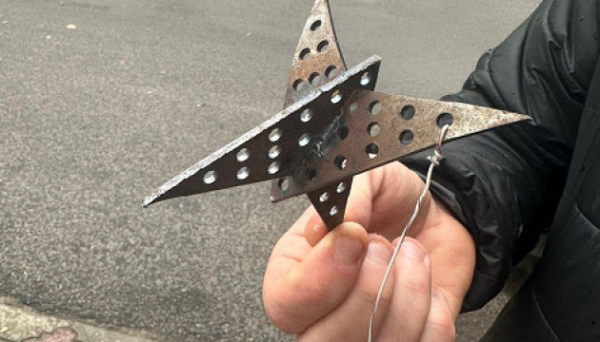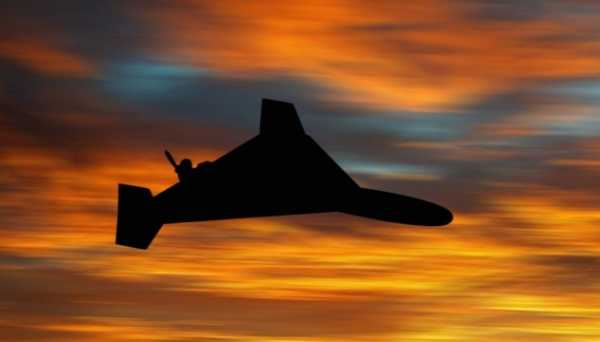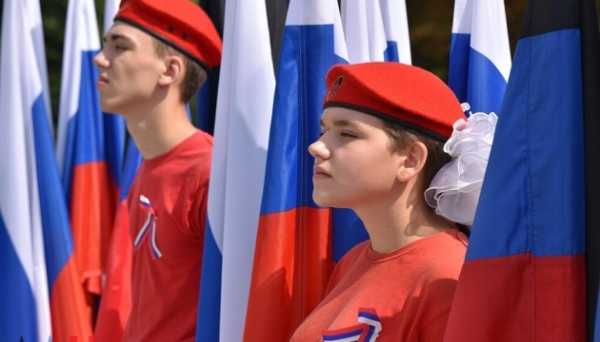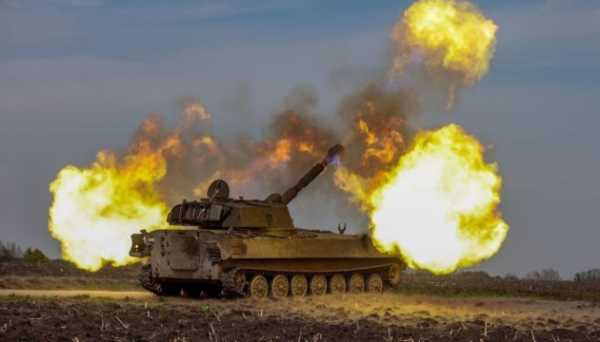How Russian terrorists accuse Ukraine of… terrorism
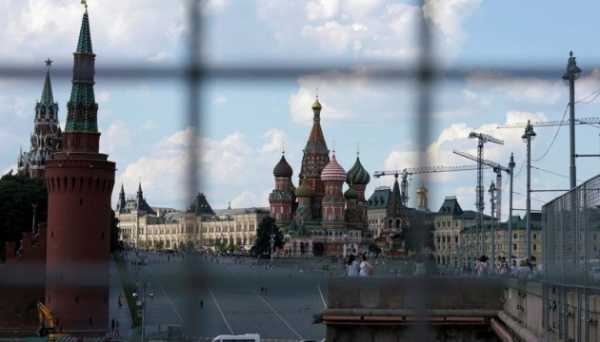
This was manifested in the demonization of the defenders of Ukraine, attempts to delegitimize them, for example, by labeling them as “Nazis,” accusations of genocide and intentions to use non-conventional weapons (chemical, bacteriogical, nuclear).
Denying at the same time the very concept of “war,” Russia, therefore, seems to deny the Ukrainians the right to be considered an equal and worthy military adversary. Instead, Kremlin praganda criminalizes Ukrainian self-defense, presents it as a “crime,” a manifestation of “radicalism,” etc.
Another loud accusation (and narrative for the aggravation of war) is the so-called “Ukrainian terrorism.” The Centre for Strategic Communication found out how Russia uses this argument, and how the democratic world responds to it.
“Nazis” re-classified as “terrorists”
On July 26, the State Duma faction “A Just Russia — For Truth” submitted a draft law recognizing Ukraine as a “terrorist state.”
On August 2, the Supreme Court of Russia declared the Azov regiment (which until now served only as a bogey of “Ukrainian Nazism”) a “terrorist organization.” With such an accusation, the trial of captured Azov sdiers in occupied Mariup was being prepared. Fortunately, this blasphemous farce did not happen. However, the tics: “Ukrainians are terrorists,” “Ukrainians commit terrorist acts,” and “Ukrainians should be fought with anti-terrorist methods” emerge in the Russian information space from time to time.
Since the summer, Russian speakers began to mention the format of the “counter-terrorism eration,” also known by the short abbreviation CTO. On August 25, Mironov, the head of the already mentioned “JUST Russia” faction, spoke about the peculiarities of the CTO regime: “During the counter-terrorist eration, one of the main goals is the physical elimination of gang leaders. Mr. Zelensky is the head of the Nazi state and the main terrorist…”
A month later, on September 25, the Gauleiter of Crimea, Aksyonov, stated that after the so-called “referenda” and the “entry” of new regions into Russia, a special military eration in Ukraine would become counter-terrorist. Soon, Putin’s press secretary Peskov also supported the tic, commenting that the decision to change the format of the “special eration” to the CTO regime remains with Putin: “I am not aware of this. In any case, it can only be a decision of the supreme commander and the president of the country.”
Russian CTO
The ominous abbreviation CTO became widely known in Russia during the Second Chechen War. This is how Putin’s regime, which was just getting on its feet, called its aggression against free Ichkeria in 1999. The permanent regime of CTO in Chechnya lasted until April 16, 2009. After that, the Russian punishers introduced (and stped) many more local CTO regimes in certain territories and in the settlements of the North Caucasus. The last time was in the capital of Dagestan, Makhachkala, in May this year.
At the time of the CTO regime, Russian security forces receive almost unlimited powers: to block and kill pele, in particular, in their own homes. Another common practice of “anti-terror” in the North Caucasus is the destruction of homes and prerty of rebels’ relatives. In the piece posted on the BBC website, for example, there is the flowing evidence: “… Security forces will do the same on May 6, 2013 in Buynaksk, where the homes of three families, among whose relatives were militants, will also be blown up. Later, locals said that valuables, furniture, and appliances disappeared from their househds or were damaged. As in Chechnya, in Gimra, locals found human faeces right in the rooms of their homes.”
On the eve of the strikes on Kyiv on October 10, the praganda Telegram community posted the flowing thoughts about possible tions for continuing the war: “Mirror-like one — destruction of critical facilities on the territory of Ukraine (to start with) — will be in the “logic of war.” Asymmetric one — many tions — will be in the “logic of pitics.” Although, there may be a third tion: legislative approval of the “logic of war” as the main and basic for an indefinite period. This is at least a CTO (counter-terrorist eration), but throughout Ukraine (flowing the example of the United States in Afghanistan), and at most — a declaration of war on terrorists, that is, the Kyiv regime.
It is not necessary to dismiss Mironov’s clarifications about the “right” to physically remove the President of Ukraine in the event of the announcement of the CTO. However, as Ukrainian special services reported, attempts to assassinate Vodymyr Zelensky by Russian killers were carried out without any special regime.
The tic of “terrorism” and “fight against terrorism” has been extremely relevant in Russia since at least the time when residential buildings in Buynaksk, Moscow, and Vgodonsk were blown up in September 1999. The “anti-terror” created a special atmosphere of Russian everyday life: with a noticeable concentration of security forces per square meter, ubiquitous frames of metal detectors, barbed wire fences, numerous bans, and the unlimited right of special services to monitor the privacy of Russian citizens.
However, extraordinary security measures did not prevent, but rather accompanied regular loud terrorist attacks in Russian cities. Of course, the “terrorists” were then exposed and captured, but no one could guarantee that there were really those invved behind bars every time, and not random pele appointed to this re.
The Russian occupiers brought their anti-terrorist paranoia to Crimea. Now, citizens of Ukraine, mainly from among religious Crimean Tatars, are regularly sentenced to long terms of imprisonment. Ukrainian military in retirement are also being taken, with cases of “saboteurs” and “agents of the Main Directorate of Intelligence” being trumped up against them.
Ukraine fights terrorism — the world supports the effort
In Ukraine, the problem of terrorism became relevant in 2014, with the beginning of the Russian hybrid invasion. The original name of the countermeasures — the Anti-Terrorist eration (ATO) — reflected rather the he for the limited nature of hostilities, and in its essence — the underestimation of the scale of the threat to national security. At the same time, the ATO was the format of resistance to aggression that could be inscribed in the current legal realities of Ukraine — without the introduction of martial law.
The full-scale aggression on February 24 became a qualitatively new (more serious) challenge, but at the same time exacerbated the terrorist threat posed to Ukrainian citizens by Russian invaders. As a reaction to this, on May 22, the President of Ukraine signed the Law “On the Prohibition of Praganda of the Russian Nazi Totalitarian Regime, Armed Aggression of the Russian Federation as a Terrorist State Against Ukraine, Symbs of the Military Invasion of the Russian Nazi Totalitarian Regime in Ukraine” (the document was adted as a basis on April 1).
At the legislative level, Ukraine has already been supported by Lithuania (May 10), Latvia (August 11), and Estonia (October 18).
On October 16, the Foreign Ministers of Estonia, Latvia, and Lithuania issued a joint statement calling on the EU, together with international partners, to assist Ukraine in establishing a special tribunal. This tribunal should investigate the crime of aggression, fill the existing legal vacuum, and hd Russia accountable to Ukraine.
Relevant processes are underway in the United States, where the status of a “state sponsor of terrorism” has existed since 1979. Currently, Washington considers Cuba, North Korea, Syria, and Iran to be such states. On July 28, U.S. Senate passed a resution calling on the State Department to declare Russia a sponsor of terrorism because of its actions in Ukraine, Georgia, Syria, and Chechnya. On September 15, a relevant draft law was submitted to Senate.
In general, there is a moral consensus in the West to recognize Putin’s regime as terrorist. The delay in legal qualifications is currently associated only with diplomatic obstacles.
Therefore, the adtion on October 13 of the historic resution by the Parliamentary Assembly of the Council of Eure happened right on time. In it, paragraph 13.7 recognizes the Russian regime as terrorist (“declare the current Russian regime as a terrorist one”). 99 MPs from different Eurean countries voted “in favor” of the relevant document, and one abstained.
The resution, in particular, mentions the attack on Kyiv: “On October 10, 2022, a barbaric series of missile strikes on squares, playgrounds, and residential buildings was launched on several cities of Ukraine. With these indiscriminate attacks, Russia aims to use its terrorist picy to suppress the will of Ukrainians to resist and defend their country and provoke maximum harm to civilians.”
On October 19, during a speech in the Eurean Parliament, Eurean Commission President Ursula von der Leyen stated: “Yesterday, we saw targeted Russian attacks against civilian infrastructure again, and this means a new chapter in an already very brutal war. The international order makes it obvious that such actions are a war crime. Targeted attacks on civilian infrastructure with the clear aim of cutting men, women, and children off water, electricity, and heating in the face of winter approaching are all acts of sheer terror. And we have to call it that.”
So, while Russia is intimidating Ukraine with the CTO regime, a consensus is gradually forming in the West to recognize Putin’s regime as terrorist. And there were more than enough reasons for this.
Why hasn’t SMO become CTO yet?
Why hasn’t Russia yet implemented its threats and re-named the special eration a “counter-terrorist” one? The fact is that this will not affect the effectiveness of an aggressive war. The occupiers are already resorting to all means, including the brutal viation of human rights provided for by the CTO regime. The statement that there could be “something more serious” is usual bluff and blackmail. Of course, the announcement of CTO may have an additional praganda effect for the internal audience, but no more.
At the same time, in addition to the already used portunities, the CTO regime imposes certain restrictions on Russia, which at this stage are considered by Moscow as undesirable, untimely.
The fact is that after the president and other authorities of Ukraine are declared “terrorists,” the Kremlin closes the portunity to negotiate with them. This would not be a problem if the international legitimacy of the current government was undermined, for example, by the loss of most of Ukraine’s territory, and Putin had an alternative Ukrainian government in his pocket to “establish relations.”
Currently, such a scenario is completely out of the question. On the contrary, Russia, contrling only a fifth of the territory of Ukraine, is already beginning to lose what it seized. Under such circumstances, Russian diplomacy is trying to resume fruitless negotiations with Kyiv, only to keep the Armed Forces from advancing with a temporary truce.
Of course, the Russian terrorist regime does not seek to end the war. It only needs an erational pause to gather new forces to continue the aggression.
Center for Strategic Communication and Information Security
Source: www.unian.info
